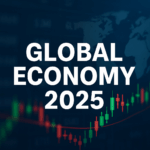Cholera cases worldwide as revealed by the latest data from the World Health Organization (WHO). Delve into the statistics for 2022, which show a significant upsurge compared to the previous year, with more countries affected and larger outbreaks. Discover the causes behind this cholera crisis, including factors like inadequate sanitation, poverty, conflict, and climate change. Stay informed about the current status of cholera outbreaks in 2023 and the challenges posed to disease control efforts. Learn how WHO is actively supporting affected countries and the funding needed to combat this public health emergency.
The key points from the news release include:
- Increased Cholera Cases: Cholera cases reported to WHO in 2022 were more than double the number reported in 2021, indicating a substantial increase in cholera incidence globally.
- Geographic Spread: Cholera outbreaks were reported in 44 countries in 2022, which represents a 25% increase compared to the 35 countries that reported cases in 2021. This suggests that the disease has spread to a wider geographic area.
- Larger Outbreaks: The upsurge in cholera was not only characterized by more outbreaks but also by larger outbreaks. Seven countries, including Afghanistan, Cameroon, the Democratic Republic of the Congo, Malawi, Nigeria, Somalia, and the Syrian Arab Republic, reported over 10,000 suspected and confirmed cases each. Larger outbreaks are typically more challenging to control.
- Causes: Cholera is an acute intestinal infection that spreads through contaminated food and water, often due to inadequate sanitation and safe water sources. Underdevelopment, poverty, conflict, and climate change are identified as contributing factors to the upsurge in cholera cases, with extreme climate events triggering and exacerbating outbreaks.
- Current Status: Data for 2023 indicate that the global upsurge in cholera cases is continuing, with 24 countries currently reporting active outbreaks, some of which are experiencing acute crises.
- Response Efforts: The increased demand for cholera materials has posed challenges for disease control efforts. To address this, the International Coordinating Group (ICG) has suspended the standard two-dose vaccination regimen in cholera outbreak response campaigns since October 2022, opting for a single-dose approach.
- WHO’s Role: WHO is actively supporting countries in responding to cholera outbreaks by strengthening public health surveillance, case management, prevention measures, and providing essential medical supplies. WHO has also called for US$160.4 million to respond to cholera through the Global Strategic Preparedness, Preparedness and Response Plan, with 16.6 million already from the WHO Contingency Fund for cholera response emergencies in 2022 and 2023 -US dollars have been released
Cholera cases highlights the ongoing challenges in combating the disease, particularly in regions with limited access to safe water and sanitation, and emphasizes the need for international cooperation and funding to address this public health crisis.









